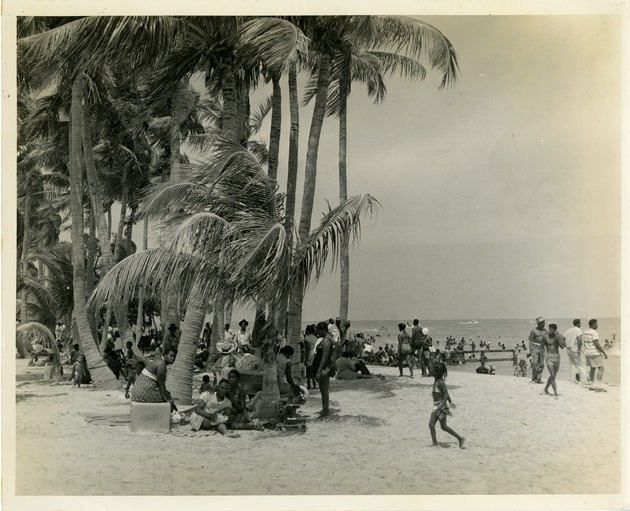Historic Context Study: Violence against People of African Descent in the United States, 1500-2020
I currently serve as the principal investigator for a comprehensive historical context study, contracted by the National Park Service (NPS) of violence against people of African descent in the United States and its territories from 1500 to the present day. This study will encourage new interpretations of such history for public audiences, through both future NPS theme studies and the addition of key sites to the National Registry of Historic Places and list of National Historic Landmarks.
The approach for this study will consider the ways in which shifting imperial, national, and territorial boundaries within the present-day United States and its territories have shaped the history of violence against people of African descent. As they moved across such boundaries and territory changed hands, people of African descent found themselves operating in a variety of social, political, and legal contexts for anti-Black violence. With this in mind, the study will trace the history of violence against people of African descent in British North America, as well as in the parts of New Spain, New France, and the Danish West Indies that later became part of the United States and its territories and will consider how these different contexts shaped that history.
This study will also focus on the ways that communities of African descent have resisted anti-Black violence, and the ways that this resistance has been shaped by changing historical contexts. These responses have included maroon communities formed by people fleeing enslavement, armed uprisings of enslaved people, anti-lynching campaigns, organized self-defense groups, and nonviolent social movements. While recognizing the importance of specific historical context to these responses, we can identify some themes that run across them: the question of whether to meet violence with armed struggle; the question of whether to aim for legal remedies, broader social change, or changes to Black consciousness; and what tactics, such as moral suasion or direct action, to employ.
Finding Claude Brown
I am currently working on a social, cultural, and intellectual biography of Claude Brown, whose 1965 autobiographical novel Manchild in the Promised Land won praise from critics upon its release and has sold millions of copies worldwide. Brown offered a gritty portrayal of everyday Harlemites’ struggles to survive during the 1940s and 50s, in the aftermath of the Great Migration, and recounted his troubled youth spent in and out of reform institutions. Brown published his novel just as Americans were struggling to make sense of urban violence and growing black militancy alongside the victories of the civil rights movement. Amid the growing urban crisis, Brown used the success of Manchild to carve out a role for himself as a commentator on gang violence and the War on Drugs.
Using archival, oral history, and literary research, this project will trace the afterlives of the Great Migration, of Brown’s best-known work, and of the author himself. Brown’s parents were among the millions of African Americans who fled the Jim Crow south to seek a better life in the urban north, but found that the “promised land” fell far short of expectations. How did they shape Harlem’s culture, and how did their disappointment shape the generation that followed? Brown himself spent much of his adulthood in the wake of Manchild, his defining achievement. How did he deal with the afterlife of his own success, and what does the arc of his career tell us about race and the politics of the public intellectual during his lifetime? Finally, Manchild found its own afterlife in policy discussions, first amid urban unrest in the 1960s, and later on during the War on Drugs in discussions of gang violence and juvenile “superpredators.” How did others mobilize Brown’s work in formulating the public policy of crime and punishment, and how did Brown respond?
African American AIDS Activism Oral History Project + Digital Archive
As part of my research for To Make the Wounded Whole, I launched both an oral history project among African American AIDS activists and an online archive of the fight against HIV and AIDS in Black America.
Digitizing Virginia Key Beach
From 2017 to 2019 I also served as the principal investigator on a federally funded two-year project to digitize the archives of the Virginia Key Beach Park Trust, which preserves the history of Miami’s “colored only” beach. As part of that project, a team of five FIU graduate students has digitized thousands of unique documents and artifacts that capture Miami’s African American history.

